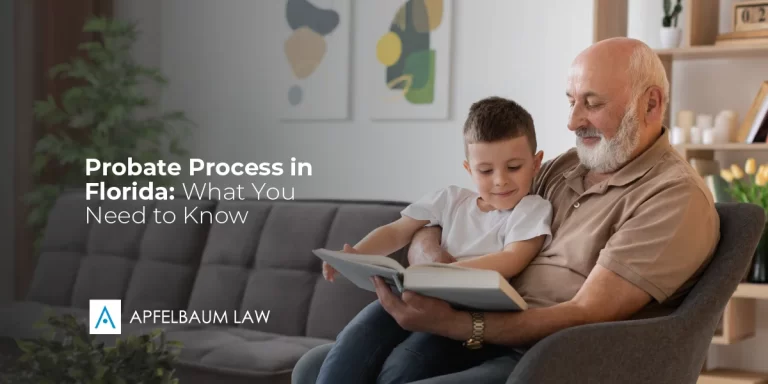Adopting a child in Florida is a significant decision that can bring joy and fulfillment to both adoptive parents and the child. The process is guided by a thorough legal framework to ensure the well-being of the child while facilitating the transition into a loving and supportive family environment.
However, the intricacies of adoption law in Florida can seem overwhelming, from understanding different types of adoption to fulfilling legal requirements and completing necessary paperwork. Having a qualified Florida adoption lawyer on your side may be of great help.
Types of adoptions
There are many paths a family can follow to grow through adoption, and the type of adoption you choose can impact your journey. Here’s a breakdown of some common types with some additional details:
Domestic adoption
This happens when you adopt a child from within the U.S. There are three main ways this can be done:
- Foster Care Adoption: Involving adopting children in the foster care system, who are under the care of the state.
- Infant Adoption: Adopting a newborn or young child placed for adoption by their birth parents. This can be done through private adoption with an adoption attorney or through a public adoption agency. Private adoptions can be faster but also tend to be more expensive. Public adoptions are typically more affordable but may involve a longer wait time.
- Relative Adoption: A child is adopted by a family member, such as grandparents, aunts, or uncles. This can be a great option for children who need stability and a connection to their family history.
International Adoption
It involves adopting a child from another country. This process can be complex and have specific requirements that vary by country. It’s important to work with a qualified adoption professional who specializes in international adoption to ensure a smooth process.
Stepparent Adoption
If you’re married to a child’s biological parent, you can adopt your stepchild. This can provide legal security for the child and strengthen your family bond.
Adult Adoption
This creates a legal parent-child relationship between an adult and another adult. Adult adoption may be done for various reasons, such as to solidify an existing parental relationship or to allow inheritance rights.
Who is eligible to adopt a child in Florida? (H2)
In Florida, eligibility to adopt a child is determined by several factors outlined within state law. While the primary focus is on the best interests of the child, prospective adoptive parents must meet certain criteria to be considered suitable for adoption. Here’s a closer look at who is eligible to adopt a child in Florida:
- Age Requirement: Prospective adoptive parents must be at least 18 years old.
- Marital Status: Florida allows adoption for both married couples and single individuals, with no requirement for marriage. Married couples must adopt jointly unless one spouse is legally incapacitated or the court determines it is in the child’s best interest to waive this requirement.
- Legal Capacity: Prospective adoptive parents must have the legal capacity to adopt.
- Financial Stability: While there is no specific income requirement, prospective adoptive parents must demonstrate financial stability and the ability to provide for the child’s needs.
- Physical and Mental Health: Prospective adoptive parents must be physically and mentally capable of caring for a child. This may involve undergoing medical examinations or providing documentation of good physical and mental health.
- Criminal Background Check: All prospective adoptive parents must undergo a criminal background check to ensure they do not have a history of any criminal offenses that would disqualify them from adoption.
- Home Study Evaluation: As part of the adoption process, prospective adoptive parents must undergo a home study evaluation conducted by a licensed child-placing agency or a qualified social worker.
- Parenting Experience and Support: While prior parenting experience is not necessarily required, prospective adoptive parents should demonstrate a genuine commitment to parenting and be willing to participate in pre-adoption training and support services.
What is the Home Study Process to adopt a child in Florida?
The Florida home study is a crucial step for adoptive families in the Sunshine State, ensuring they have the resources and stability to raise a child. The process involves partnering with a licensed adoption professional, gathering documents, conducting in-depth interviews, and scheduling a home visit to assess safety and suitability. To ensure a child’s well-being, background checks for all adults in the household are mandatory.
Finally, most providers require adoptive parents to complete adoption education. These courses equip them with information about child development, different adoption types, and the impact adoption has on children. Adopting parents will be one big step closer to welcoming their child once the home study has been completed and approved by the relevant adoption authorities.
How much does it cost to adopt a child in Florida?
Adopting in Florida can vary significantly depending on the path you take. Here’s a quick cost rundown:
- Foster care adoption: This is often very affordable, with minimal fees and some state support for things like home study prep.
- Private domestic infant adoption: This can range from $20,000 to $40,000, with expenses like agency fees, legal representation, and miscellaneous costs.
- International adoption: This can be even more expensive due to travel, translation services, and additional legal requirements, potentially reaching into the higher tens of thousands.
Seeking an Adoption Attorney
Should you require support with the adoption process, whether it involves adopting a child or considering placing a child for adoption, or if you have inquiries regarding any legal concerns, we encourage you to reach out to Apfelbaum Law for a confidential consultation. Our firm operates from offices located in Port St. Lucie and Stuart, while extending our legal services across the Treasure Coast and throughout the state of Florida.



